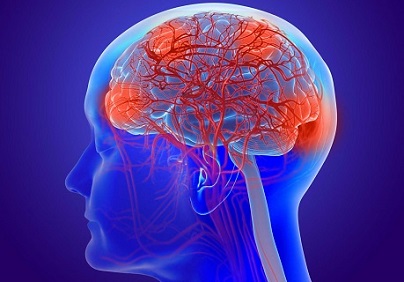University Of California Scientists Warn That COVID-19 Induced Vascular Dysfunctions And Neuro-Inflammation Are Causing Long-Term Cognitive Deficits
COVID-19 News - Jun 03, 2023 1 year, 10 months, 2 weeks, 3 days, 10 hours, 58 minutes ago
COVID-19 News: The COVID-19 pandemic caused by the SARS-CoV-2 virus has wreaked havoc across the globe, primarily affecting the respiratory system. However, mounting evidence suggests that this virus can extend its reach beyond the lungs, leading to a range of complications in various organ systems. Among these complications, neurological symptoms and cognitive impairments have emerged as significant concerns. Many patients, even those who have recovered from the infection, experience persistent cognitive difficulties and issues.

Studies and
COVID-19 News reports are showing that a high percentage of individuals exposed to the SARS-CoV-2 virus are experiencing cognitive issues, many even months and years later.
https://www.thailandmedical.news/news/chinese-researchers-warn-that-omicron-variants-and-sub-lineages-like-ba-2-2-1-can-cause-cognitive-decline-in-those-aged-50-and-above
https://www.thailandmedical.news/news/scientist-from-brazil-find-that-sars-cov-2-spike-proteins-causes-memory-loss
https://www.thailandmedical.news/news/washington-university-study-shows-sars-cov-2-infections-increases-risk-of-various-neurological-issues-including-strokes-cognitive-disorders-and-enceph
https://www.thailandmedical.news/news/icahn-study-shows-that-cognitive-decline-and-brain-fog-can-persist-up-to-8-months-after-contracting-covid-19-and-the-scale-is-astounding
https://www.thailandmedical.news/news/post-covid-study-reports-concerning-findings-of-cognitive-deficits-among-many-recovered-covid-19-patients
Even those with mild or asymptomatic COVID-19 infections are not spared from the issues of cognitive decline. According to a study, cases with a history of mild symptomatic SARS-CoV-2 infections have more than 18 times higher risk for cognitive deficits than individuals without clinical manifestations of the infection!
https://pubmed.ncbi.nlm.nih.gov/33576150/
https://www.thailandmedical.news/news/breaking-u-s-study-shows-that-even-
mild-sars-cov-2-infections-lead-to-brain-inflammation,-brain-damage-and-also-cognitive-issues
https://www.thailandmedical.news/news/great-news-university-of-oxford-study-shows-that-even-mild-sars-cov-2-infections-can-result-in-brain-changes-and-cognitive-decline
https://www.thailandmedical.news/news/university-of-california-study-warns-that-even-mild-sars-cov-2-infections-will-result-in-abnormalities-in-cerebrospinal-fluid-and-also-cognitive-issue
Researchers from the University of California -San Francisco, USA delved into the intriguing relationship between vascular dysfunctions caused by COVID-19 and the long-term cognitive deficits observed in patients.
Numerous studies have highlighted the occurrence of cognitive dysfunction following COVID-19 infection. Patients, both hospitalized and non-hospitalized, report impairments in memory, decision-making, concentration, and executive functions. These cognitive deficits can persist for several months, significantly impacting the quality of life for individuals affected by the virus.
Studies have shown that systemic inflammation plays a pivotal role in COVID-19's impact on cognitive function. The release of pro-inflammatory cytokines triggered by SARS-CoV-2 infection can lead to endothelial dysfunction, disrupting the delicate balance of the blood-brain barrier (BBB). Consequently, the compromised BBB allows immune cells and other particles to infiltrate the brain, exacerbating brain injury and neuro-inflammation. The severity of cognitive impairment appears to correlate with the extent of BBB disruption, highlighting the role of vascular dysfunction in this process.
Multiple studies have documented cognitive impairments in COVID-19 patients, even after recovery. Cohort studies have revealed a high prevalence of memory problems, attention deficits, and executive function difficulties in individuals who previously contracted the virus. Furthermore, neuroimaging studies have detected ischemic infarcts and BBB dysfunction in COVID-19 patients experiencing worsening cognitive impairment. These findings underscore the significant impact of COVID-19 on cognitive health.
Vascular dysfunction induced by SARS-CoV-2 infection contributes to cognitive impairment in several ways. The virus can disrupt the BBB, allowing the infiltration of pathogens and causing ischemic, hypoxic, and thrombotic threats to the brain. Additionally, the dysregulation of the angiotensin system due to the viral spike protein's occupation of ACE2 receptors can further impact blood pressure regulation and oxygen supply to the brain.
Prolonged neuro-inflammation, a consequence of COVID-19 infection, has been implicated in both acute and chronic cognitive impairments. Chemokines, which regulate immune responses and play a crucial role in CNS development, have been found to be dysregulated in COVID-19 patients experiencing cognitive symptoms. Elevated levels of CCL11, in particular, have been associated with white matter microglial reactivity and cognitive weakening.
The relationship between vascular dysfunction, neuro-inflammation, and cognitive deficits following COVID-19 infection is becoming increasingly evident.
The disruption of the BBB, along with the inflammatory response triggered by the virus, plays a crucial role in long-term cognitive impairments. Future research should focus on further elucidating the precise mechanisms underlying these cognitive deficits and identifying potential therapeutic targets.
As the world continues to battle the COVID-19 pandemic, understanding the far-reaching effects of the virus on various bodily systems is crucial. By unraveling the complex interplay between vascular dysfunctions, inflammation, and cognitive impairments, researchers can pave the way for targeted interventions to mitigate the long-term cognitive consequences of COVID-19.
The study findings were published on a preprint server and are currently being peer reviewed.
https://www.preprints.org/manuscript/202306.0170/v1
For the latest
COVID-19 News, keep on logging to Thailand Medical News.
